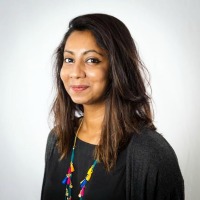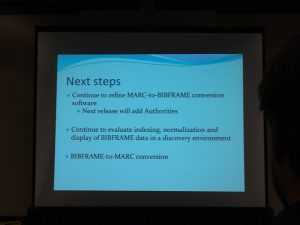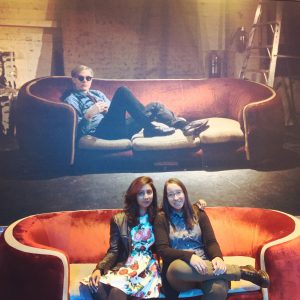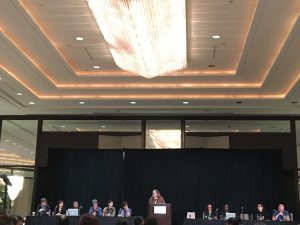
Nushrat Khan is currently a fellow at the North Carolina State University Libraries, where she’s cross-appointed in Digital Library Initiatives and the Acquisitions and Discovery Department. Nushrat attended the 2017 DLF Forum with support from a DLF Students and New Professionals Fellowship.
Let Linked Data Be a Community Effort
DLF is such a welcoming community that once someone becomes a part of it, they would always look forward to coming back. This year marked my third DLF Forum and as always it was a great experience. Similar to the past years, the program was full of many talks in interesting topics. I was particularly interested in the linked data topic as it aligns with my work and research interest. It was exciting that there was not only a dedicated session on this topic, but other relevant talks were spreaded over different sessions.
As a part of my linked data initiative at the North Carolina State University Libraries, I have been exploring major linked data projects and communities, and the Linked Data for Libraries project is one of them. It was a great opportunity to meet with some of the project members in person and hear about their project updates.
The application of linked data in libraries is still an exploratory area but it is growing fast. From the talks it was evident that majority of linked data projects are currently undertaken by the large-scale research institutions, such as NASA, Stanford University, Cornell University, Columbia University, and Library of Congress (LoC). The ultimate goal of using linked data technologies is to link different data sources on the web to make information more accessible and a lot of these works build on top of existing contributions. So, more collaborative work within the community members would help adopt the application of linked data by smaller-scale universities. For example, LoC has been developing the Bibliographic Framework (BIBFRAME) vocabulary to transform MARC records from catalog to linked data and developing different tools to help with this transformation. However, in the long run we would want the systems to connect the transformed linked data records to the discovery layer and it would be more efficient to work collaboratively on such large-scale developments as it entails availability of funding, staff and technical skills. So, DLF is a great platform to inform the community members about these recent developments to help them understand where we are heading next and set realistic goals in terms of starting new linked data projects.

Some other interesting sessions include project management, research management and user experience. All the talks were insightful and touched varied areas in these broad topics. I believe this is what makes the DLF Forum an important venue for idea generation, community building and professional engagement.
In addition to the great program, I am particularly thankful to receive the DLF New Professionals Fellowship. It was a wonderful opportunity to meet a cohort of brilliant fellows and hear about their involvements in digital librarianship. I also had the chance to present on our open source project for creating bento-box search experience using QuickSearch and received important feedback from others. All in all this was another successful year of this conference and an outstanding opportunity to learn, engage, be inspired and feel motivated. I hope this community continues to grow and be a valuable platform for new professionals like me.


